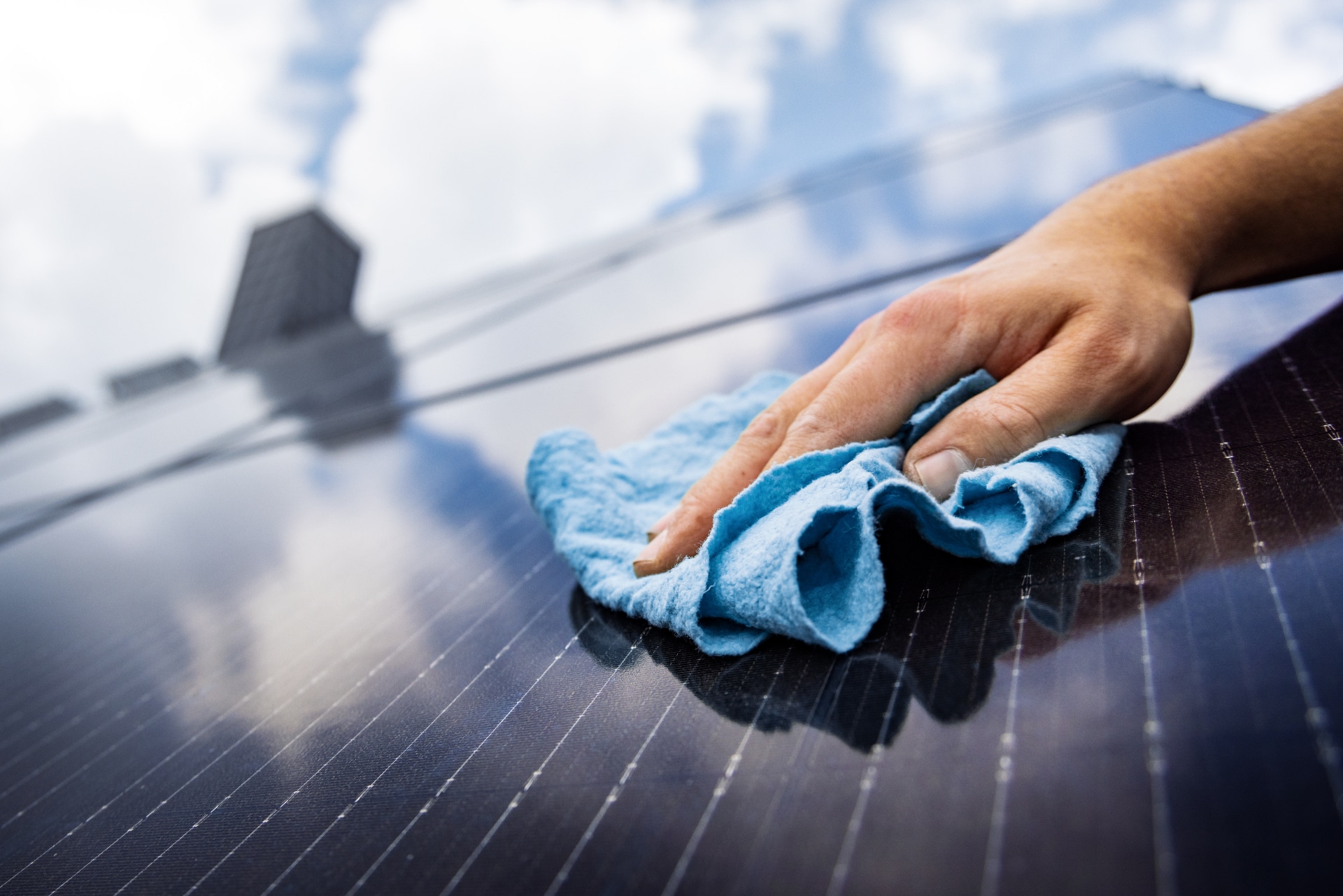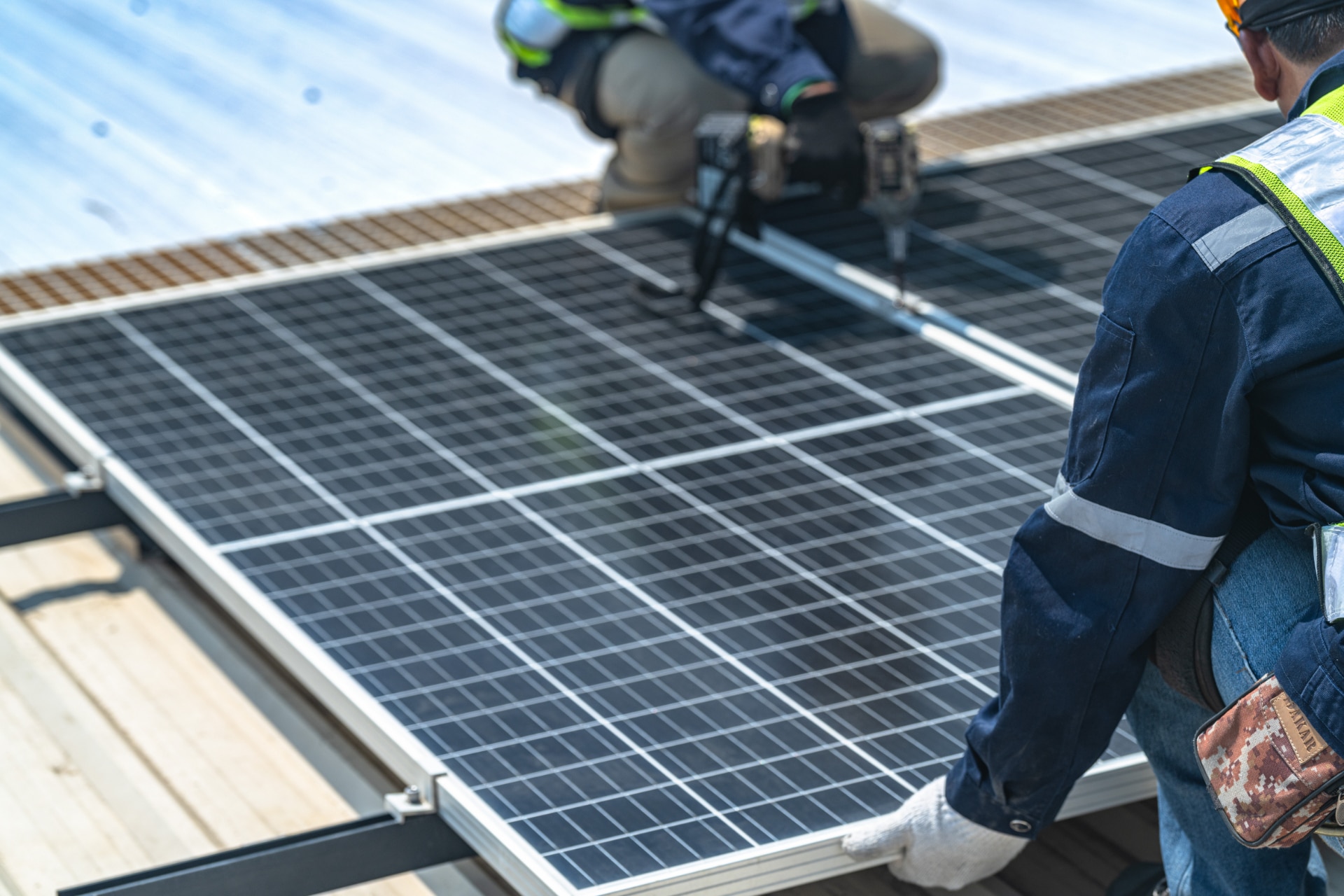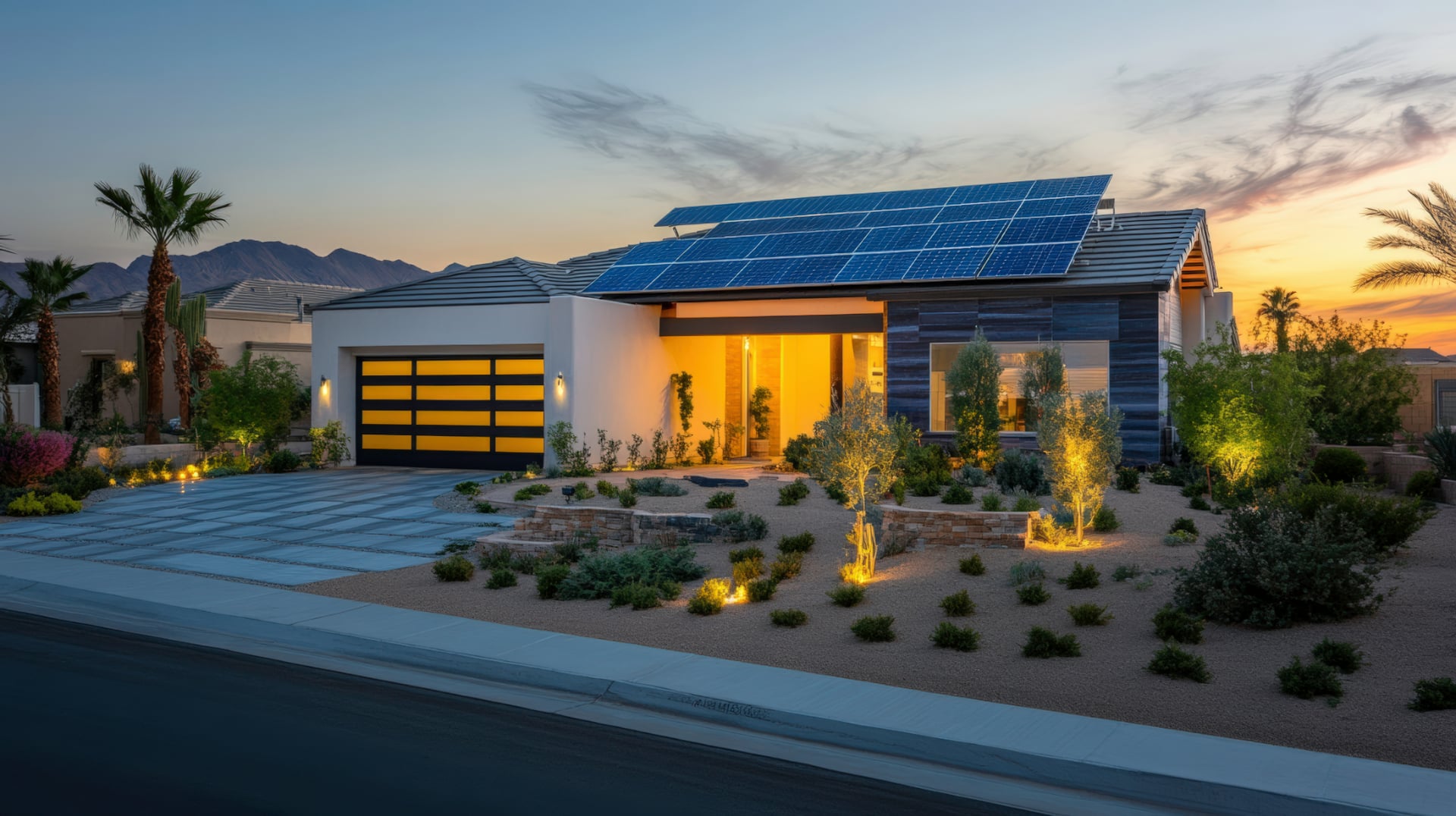With rising energy prices, homeowners wonder, “Are solar panels worth it?”
Solar panels are a method of generating electricity on your own, which helps reduce electricity bills and provides a green energy source. But there’s a lot more to consider, including upfront costs and installation costs, before concluding if it’s the right fit.
Solar power’s benefits differ depending on where you live and the factors that affect it. For example, local incentives and rebates may impact the ROI you get from solar panels.
So, to make a well-informed decision, you should determine if solar panels are a good option for your residence and budget.
How Do Solar Panels Work?
Solar panels convert sunlight to electricity, providing your home with power while lowering energy use costs. Each solar panel system includes sun-powered photovoltaic cells that absorb light and convert it into electric power; then transmit this power directly to your house through transmission lines so you use less from the grid. The system is typically connected to the local grid and any extra energy produced by solar panels could be returned onto grid power, granting you credits.
“Should I get solar panels on my house? ”
“Is solar panel worth it? ”
We know such questions still rotate in your mind.
Although the total cost may be expensive, the potential savings on utility bills and environmental benefits make solar panels an attractive opportunity for many homeowners.
So, the answer to all your wandering questions might be a strong Yes.
When Are Solar Panels Worth It?
Solar panels are an excellent choice for homes with good sun coverage throughout the year because this boosts their power production. Additionally, regular solar panel maintenance helps ensure that they work efficiently, maximizing energy production.
Solar panels typically pay for themselves faster if you live in a house with significant energy costs. They’re a great option if you’re trying to reduce your energy costs while also reducing your environmental impact.

How Much Do Solar Panels Cost?
Solar panel installation costs can depend on various factors, including the size and installation needs of your system and where you live. Initial expenses typically fall between $10,000 and $30,000 for typical home solar systems, and costs include buying equipment and permits needed for installation and use.
Tax rebates or incentives can significantly lower costs associated with solar panel installations, and the price depends on whether you purchase, lease, or finance the system.
How Much Can Solar Panels Save You?
The amount you can save depends on your home’s energy usage, local electricity rates, and the amount of sunshine in your locale. A properly installed system can cut utility costs by 50 to 80%, and some homeowners may even be able to eliminate their electricity expenses during warm weather.
In time, the savings will reduce the total cost associated with installation. Since you generate your own power, you’ll be less impacted by rising energy prices, making solar panels a wise long-term investment for many households.
Pros of Switching to Solar
- Lower Energy Bills: Solar panels can drastically cut down your overall electricity cost. Many homeowners pay reduced energy costs each month, and some even reduce their energy bills in full during sunny times.
- Eco-Friendly: Solar energy is a clean and renewable source. Through together solar, you decrease the use of fossil fuels, helping to reduce your home’s carbon footprint.
- Increased Home Value: Solar panels can increase property value by boosting the worth of your house. Buyers often see solar as an asset that can be added to their portfolio, which makes your home more appealing if you decide to sell it.
Cons of Switching to Solar
- High Upfront Costs: One of the main negatives is the total cost of the installation. Installation and solar panels are expensive, but incentives and solar financing can help reduce the cost.
- Weather Dependency: Solar panels produce less power on days with clouds or in areas with little sunlight. Your location significantly impacts the effectiveness and worth of solar panels.
- Space Requirements: To generate suitable electricity, you must have enough roof space to install the panels. Homes with small roofs might require alternative configurations that could impact the cost.
- Long Payback Period: While solar panels can reduce energy costs, it usually takes a few years to make up the initial cost. Some people find this lengthy payback time to be too much, which could affect their decision about whether solar panels are worth it.
Factors To Consider Before Going Solar

When deciding “Should I get solar panels on my house?” it’s important to consider the key elements that could impact your investment.
Suitability of Solar Panels for Your Home
Solar panels perform perfectly on roofs that receive plenty of sunlight. If your roof is shady, your solar energy output might be less effective, affecting savings. Assessing your home’s exposure to sunlight can help determine whether solar panels are worth it to meet your needs.
Size of the Solar System
The size of the system you choose is dependent on your home’s energy needs. Larger systems consume more energy and may lower utility costs; however, they will incur more overall costs. A balanced size of the system ensures efficiency and cost.
Maintenance and Upkeep
Solar panels require little maintenance and a few cleaning times to ensure efficiency. Solar panel cleaning will help the panels last longer, increasing the energy output with minimal maintenance.
Government Incentives and Rebates
Rebates and incentives from the government help to lower the total cost by reducing initial costs while making solar affordable. Be sure to look into local programs to increase your return on your investment.
Financing Options
Financing, including leases or loans, allows you to control the cost of installation in the long run, making solar affordable without the need for a huge upfront investment.
Local Electricity Rates
High local electricity rates can speed up savings. The higher your rates, the quicker you can see a return on investment with solar panels.
For more personalized advice on whether solar panels are worth it for you, feel free to contact us.
Are Solar Panels Worth It? Final Verdict
The answer depends on a combination of individual factors for every homeowner. Solar panels can lower utility bills, raise property value, and reduce environmental impacts, particularly in areas with sun.
However, they are not without risk.
Initial expenses and payback time must be considered in conjunction with your home’s potential and local incentives. With the proper planning and evaluation, solar energy could be a wise long-term investment.

